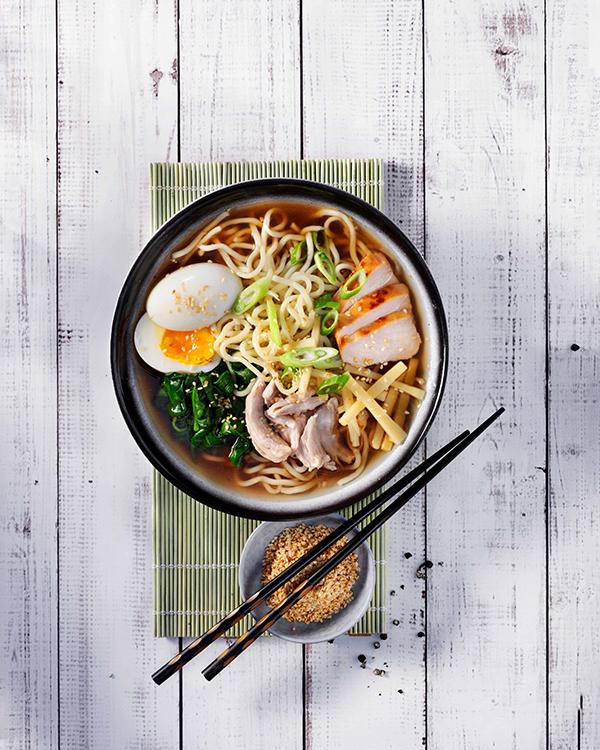Exploring Digestion Time of Ramen Noodles: What You Need to Know
Digestion is a complex process through which the body breaks down food into nutrients that can be absorbed and used for energy, growth, and repair. One popular culinary delight that has garnered attention is ramen noodles. Often considered a quick and convenient meal option, many people wonder, "How long does it take for ramen noodles to digest?" In this article, we will delve into the intricacies of digestion, the components of ramen noodles, and the time it takes for these noodles to be processed by our digestive system.
I. Understanding Digestion
Digestion begins in the mouth, where enzymes in saliva start breaking down carbohydrates. As the food travels through the digestive tract, it encounters various enzymes and acids that further aid in the breakdown process.

Digestion
The stomach plays a crucial role in breaking down proteins, while the small intestine is responsible for the absorption of nutrients. The time it takes for food to pass through this system can vary based on factors like the type of food, individual metabolism, and overall health.
II. Deconstructing Ramen Noodles
Ramen noodles are a staple in many diets, especially due to their ease of preparation. However, it's important to recognize the components of these noodles and how they contribute to digestion time.

Ramen noodles
Ramen noodles are typically made from wheat flour, water, salt, and alkaline agents. The alkaline agents, such as kansui, give the noodles their characteristic texture and color. Additionally, ramen noodles are often fried or steamed before packaging to prolong shelf life.
III. Impact of Ingredients on Digestion
The ingredients in ramen noodles can influence the time it takes for them to be digested. The wheat flour provides carbohydrates that are eventually broken down into sugars, providing a quick source of energy. The alkaline agents might affect how the noodles interact with stomach acid, potentially altering digestion speed.
Moreover, the frying or steaming process could make the noodles denser and harder to break down.
IV. Digestion Time of Ramen Noodles
Now, let's address the burning question: How long does it take for ramen noodles to digest? While there is no precise answer, some general insights can be shared. On average, it takes about 2 to 4 hours for carbohydrates to be digested and absorbed in the small intestine. However, the specific digestion time of ramen noodles can be influenced by several factors:
1. Cooking Method: Noodles that are fried might take longer to digest compared to those that are boiled, as frying can make them denser and harder to break down.
2. Additional Ingredients: The inclusion of vegetables, proteins, and fats in a ramen dish can affect overall digestion time, as these components have their digestion processes.

Additional Ingredients
3. Metabolism: Individual metabolic rates play a significant role. People with faster metabolisms may process ramen noodles more quickly than those with slower metabolisms.
4. Overall Diet: A person's overall diet can impact digestion. A diet high in fiber and nutrients might promote quicker digestion, while a diet high in processed foods might slow it down.
5. Gut Health: The health of the digestive system, including the balance of gut bacteria, can influence digestion time.
IV. Conclusion
In the realm of culinary curiosity, the question "How long does it take for ramen noodles to digest?" brings us to a deeper understanding of digestion processes. While there is no one-size-fits-all answer, it's clear that digestion time is a multifaceted phenomenon influenced by various factors.
Ramen noodles, with their unique composition and preparation methods, contribute to this intricate digestive journey. As you savor your next bowl of ramen, you can appreciate the remarkable processes that unfold within your body to convert those delicious noodles into nourishment and energy.